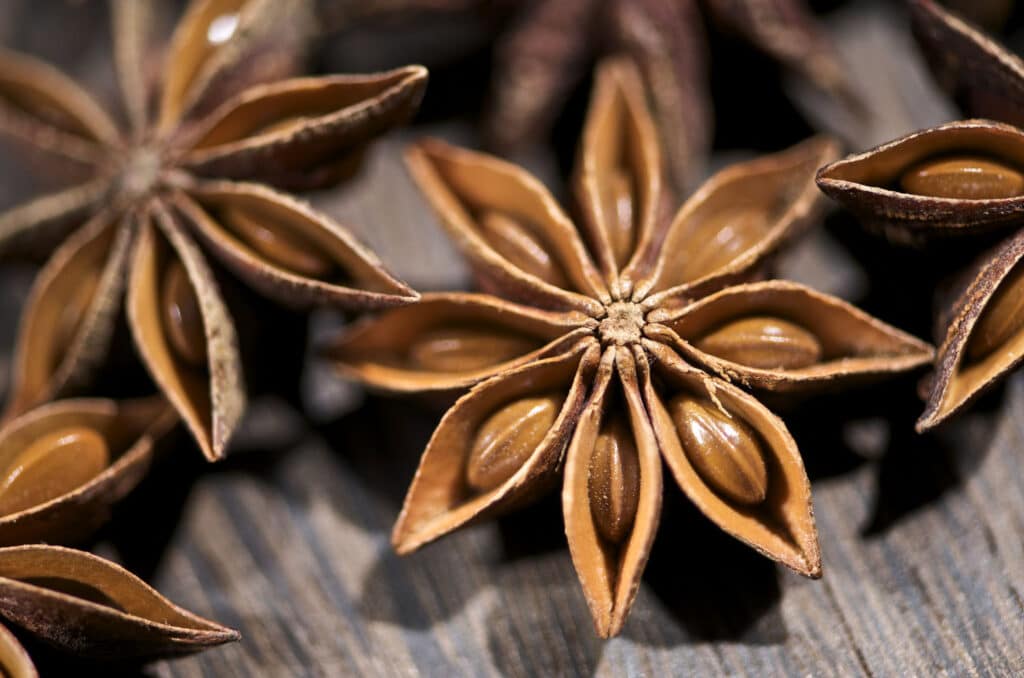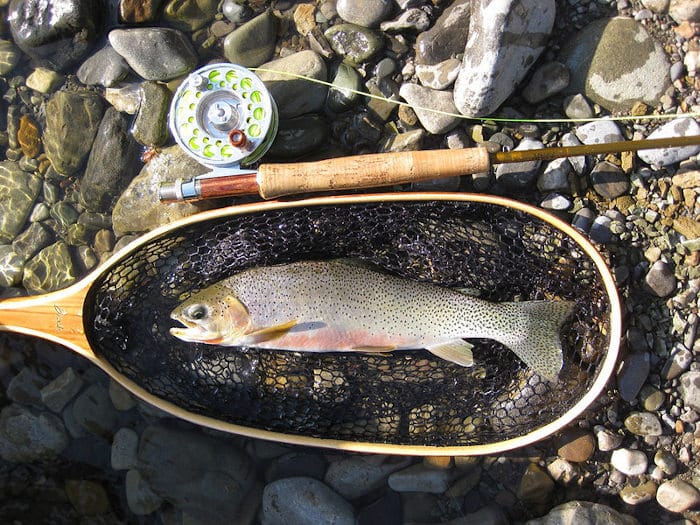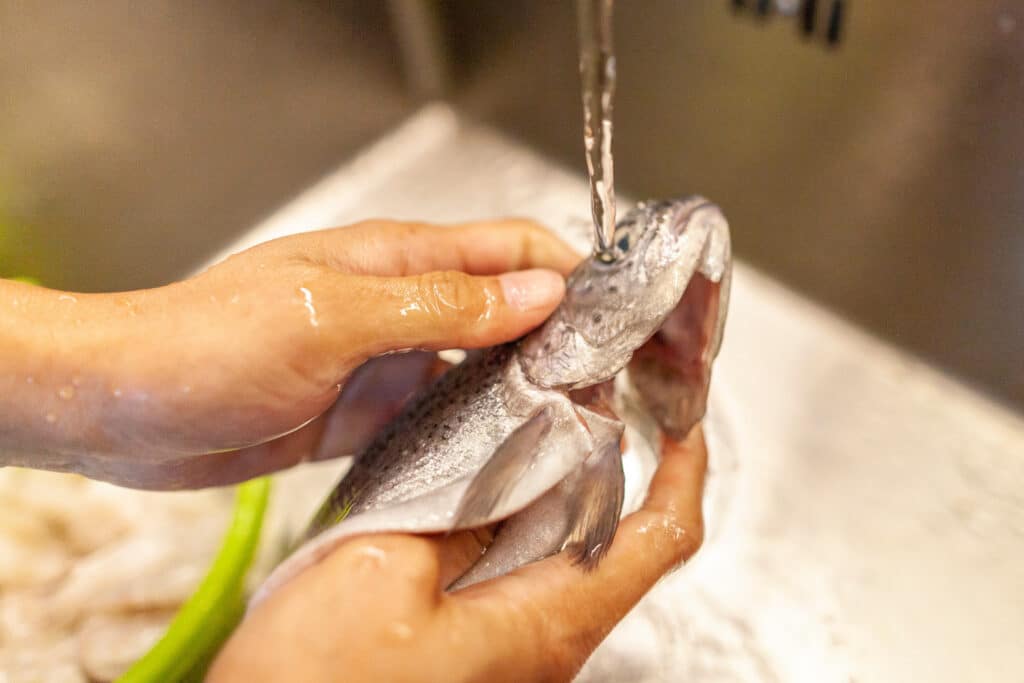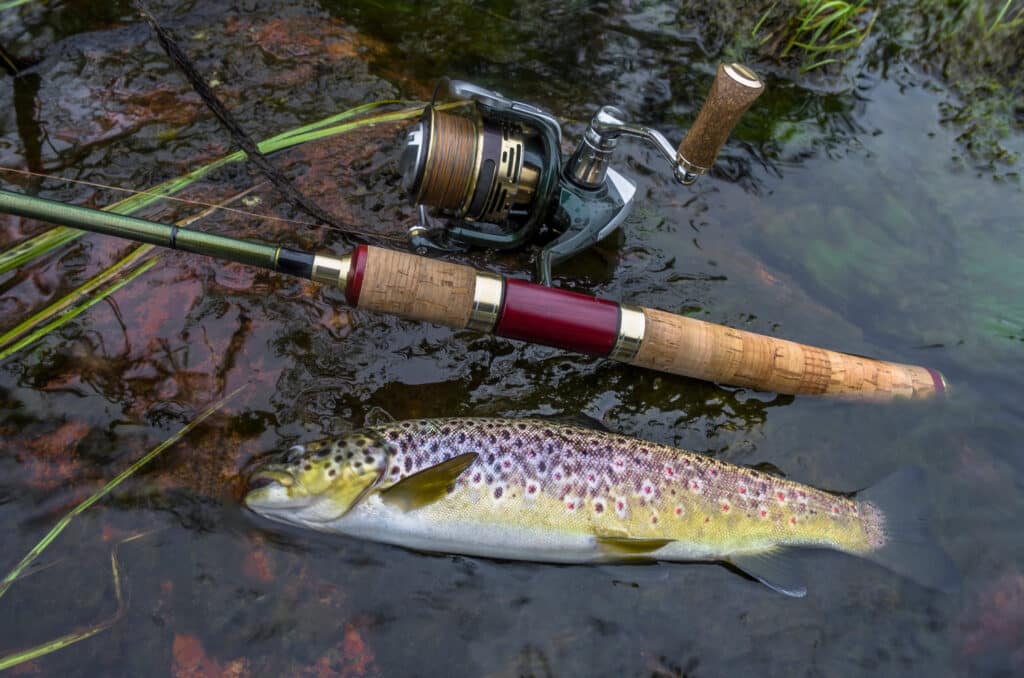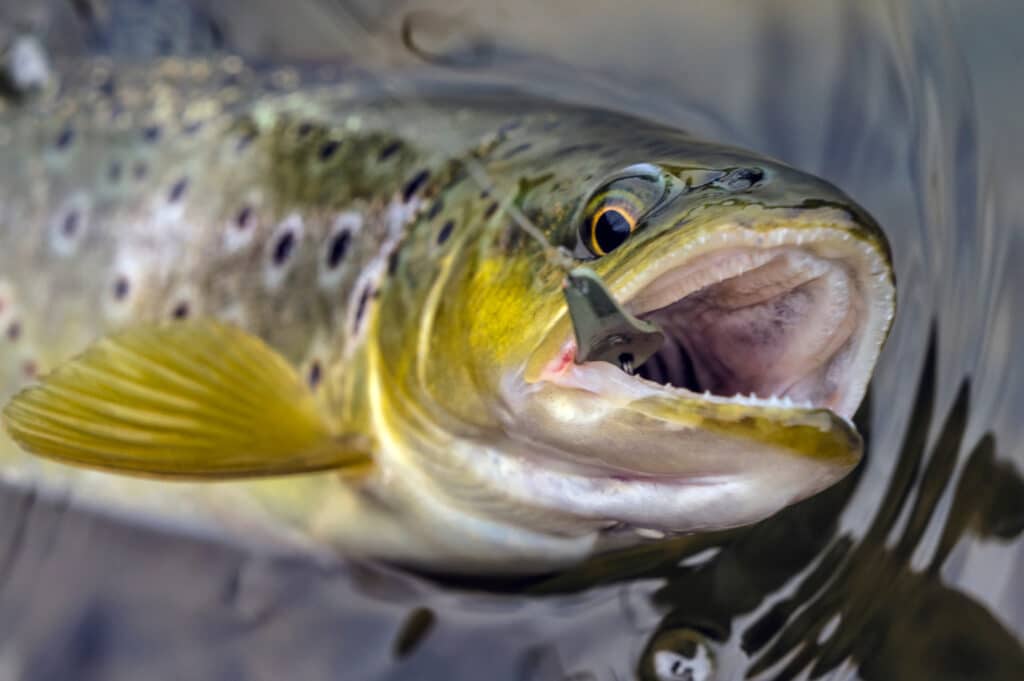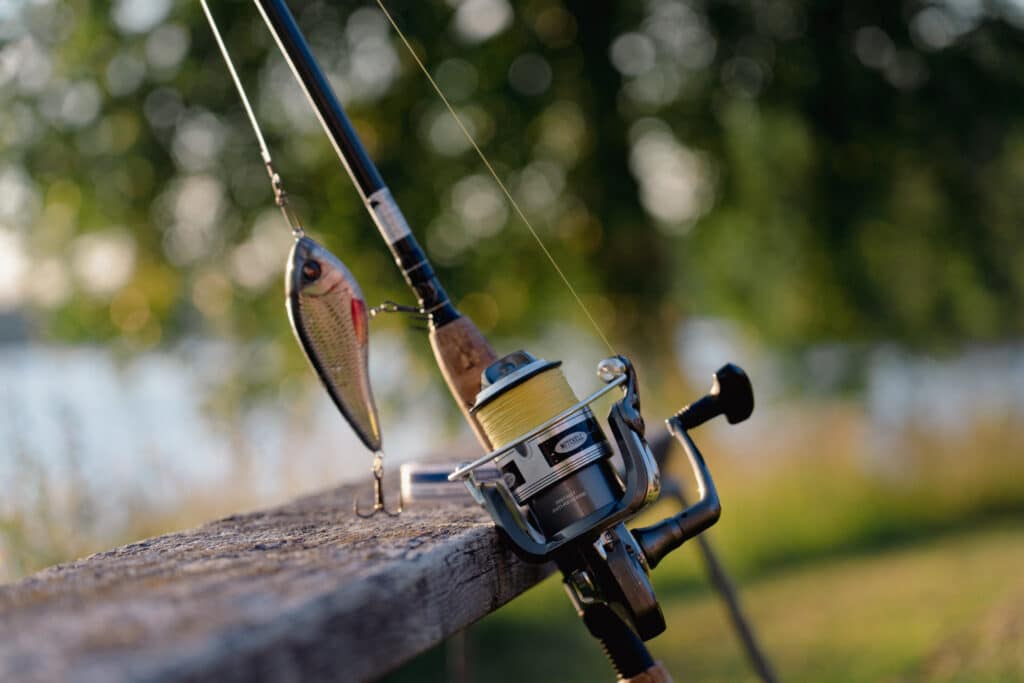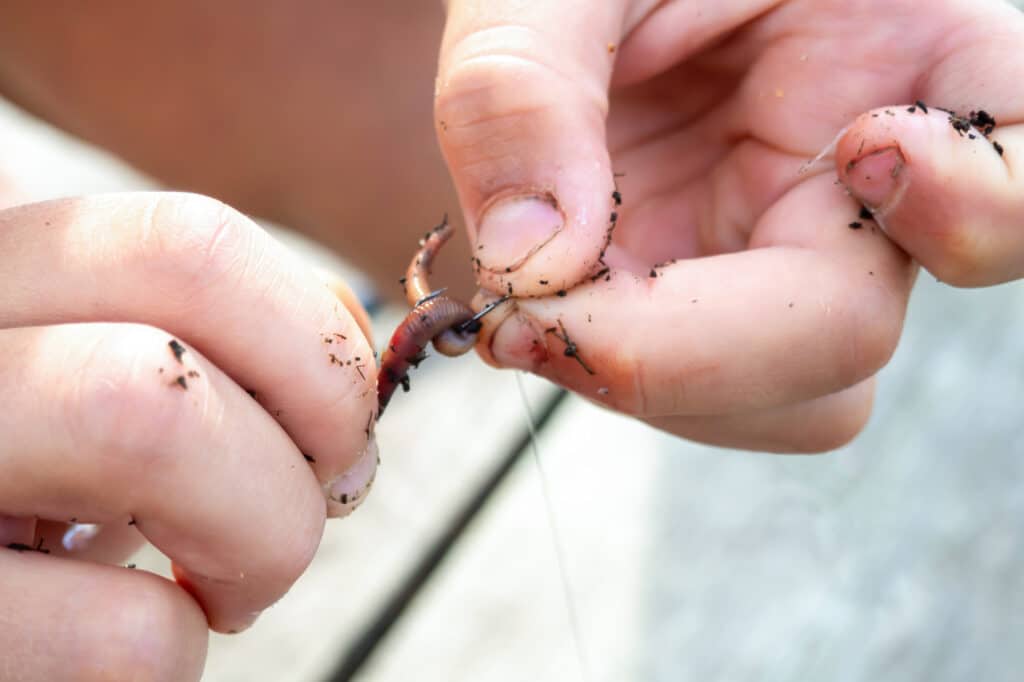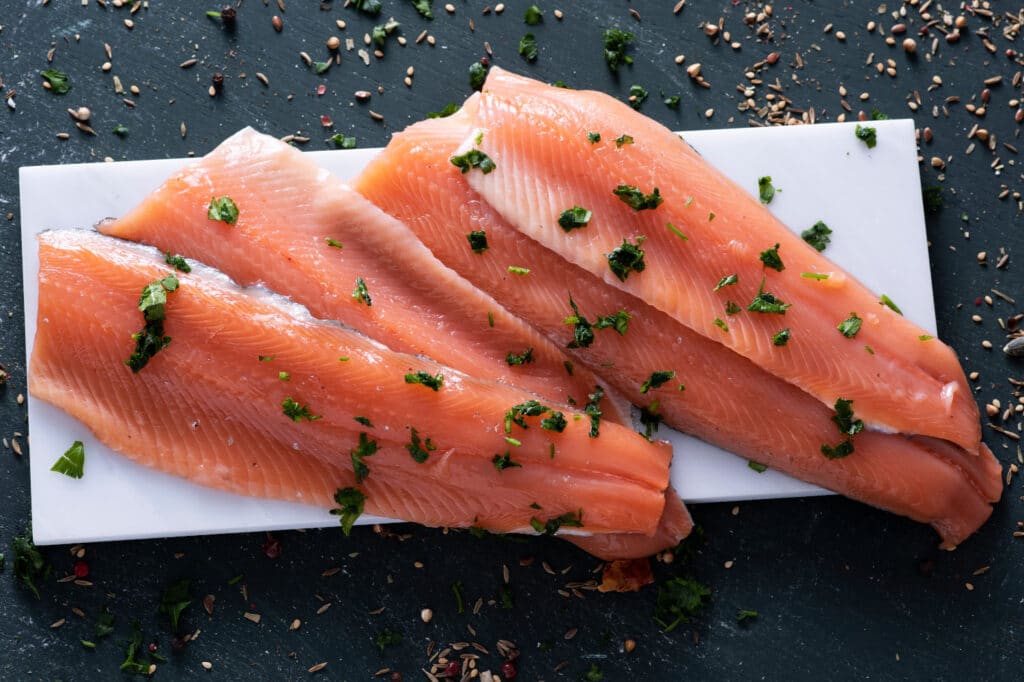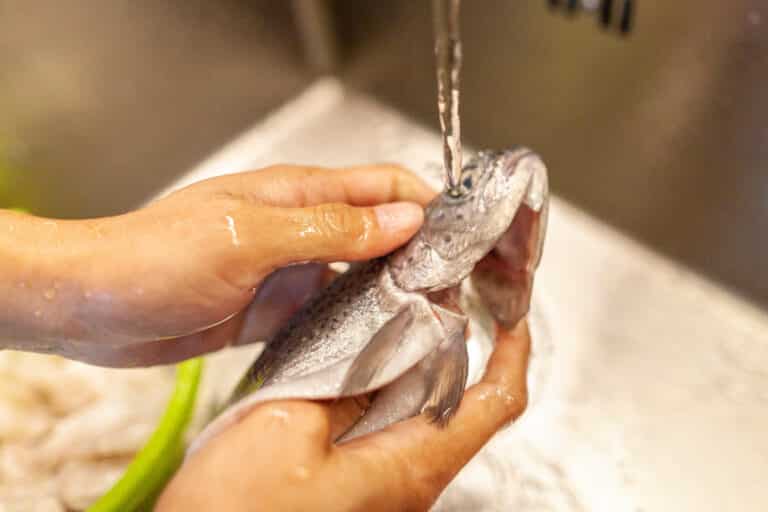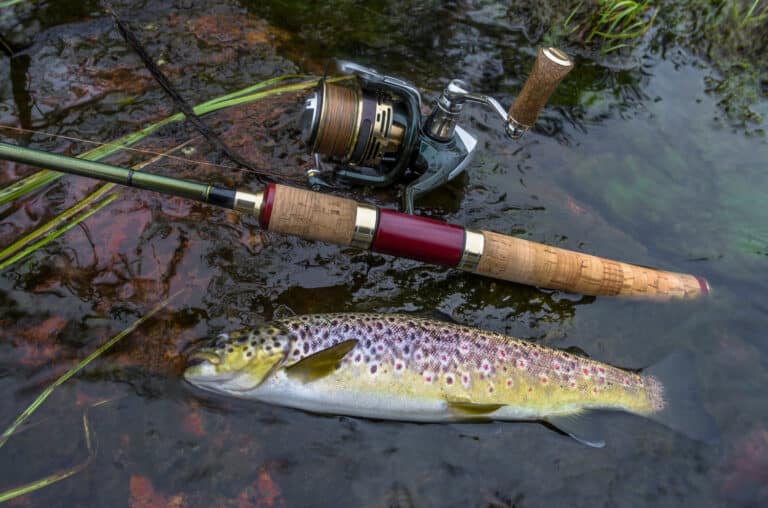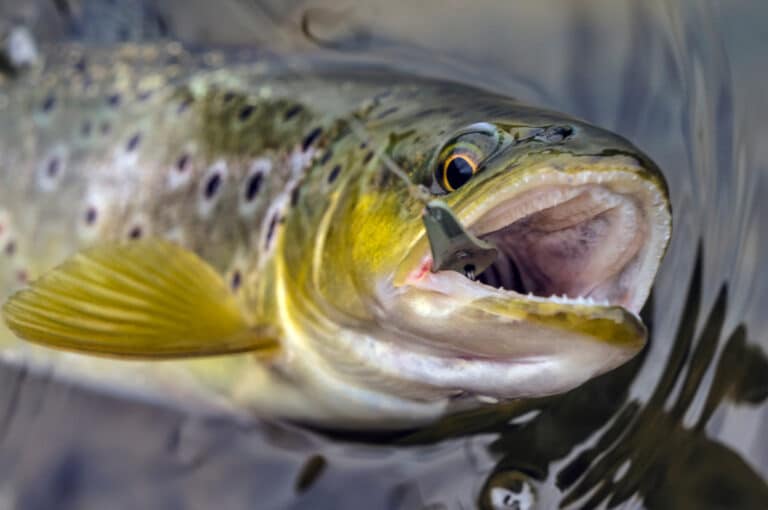If you’ve ever been down the scent aisle of your local tackle shop, you’ve probably noticed just how popular anise oil is. For every scent that seems perfectly natural, like herring or shrimp, there’s another one with sweet-smelling anise oil.
So why is it so popular to use anise oil for fishing? And the better question is, does it actually work? Rumors and myths abound, and in this article, I’ll get to the bottom of them.
The Wild Provides is a participant in the Amazon Affiliate program. If you click through one of the links on this site and make a purchase, we may receive a small commission at no extra cost to you. It helps to keep us up and running, but all recommendations are my own honest opinions.
What Is Anise Oil?
First things first: what actually is anise oil?
Anise oil is highly concentrated oil made from anise seeds. Anise is a plant commonly used as a spice and flavoring, especially in various Asian and Mediterranean cuisines. It’s the same plant we get licorice flavoring from, so if you’ve ever smelled anise oil, you’ll notice it smells just like black licorice.
Anise oil can be made in a variety of ways, but regardless, the scent is highly concentrated. This strong scent has been used for fishing for hundreds of years (if not more), but does anise attract fish? Whether or not it actually works is up for debate.
Do Fish Have A Sense Of Smell?
To figure out whether anise oil works, we first have to look at how fish use their sense of smell.
The short answer to the question of whether fish can smell is yes, absolutely. Not only can fish smell, but some fish have a sense of smell hundreds of times greater than a human. Take salmon, for instance, which use their sense of smell to find the same river they were born in after spending many months (or years) in the ocean.
The key is not in whether or not fish smell, but how fish smell. Fish have small openings in their snout called nares, which are similar to nostrils, that water is pumped in and out of. The water flows across sensory organs called rosettes, which then interpret the chemical signature of the water. These organs tell the fish’s brain what it’s smelling.
Because all this is happening in the water, though, fish can only accurately smell things that can dissolve in water. And as we all know from high school chemistry, oil and water don’t mix. At best, the scent contained in the oil will just pass right by a fish without it ever noticing it’s there.
Not only that, but the receptors in a fish’s nose aren’t even able to interpret the long-chain hydrocarbons that oils are made of. They’re much better at sensing much smaller, simpler chemicals, like amino acids. Amino acids are the building blocks of proteins, so it makes sense that fish are keyed into the actual smell of food (and amino acid-based scents are becoming increasingly popular).
So should You Use Anise Oil For Fishing?
If fish can’t smell oils, the answer may seem pretty obvious. But there is a potential advantage to fishing with oils that’s worth taking a second look at.
Since oil isn’t water-soluble, it doesn’t disperse well in the water. When used purely as an attractor, it’s unlikely to even reach a fish’s nose. But on the chance that it does, the oil can actually block the receptors from being able to receive any sensory information at all.
This scent-blocking factor can actually be a huge advantage. Because oils block a fish’s sense of smell, they are very effective when used as cover or masking scents. When you touch your lures or baits, you leave human-scented amino acids all over them, and these are huge deterrents to fish.
Sunscreens, soaps, nicotine, and just plain-old human scent can turn fish off. But if you lather up your bait in oil, you’re covering up those scents with a chemical blocker, and the fish will be much less likely to notice them.
Using any kind of oil as bait or attractant on its own isn’t going to do you any good. But its scent-blocking effect can trick the fish into holding onto your bait for just long enough to set the hook or keep it from spooking at the crucial moment.
Why Is Anise Oil So Popular For Fishing?
If all oil is essentially scentless to fish, then why is anise oil so popular for fishing?
The answer, like so many aspects of fishing, is probably one part results, one part legend. Somewhere along the line, some crazy angler probably decided to try anise oil, had a great day of fishing, and the rest is history. But while it’s not likely to be a game-changer or a magic bait, the positive experiences of countless anglers show that, at the very least, it can’t hurt.
Fish tales aside, the scent-blocking effect of oils can provide a big advantage. Whether it’s anise oil, garlic oil, or just plain old olive oil, using oils on your bait can give you the edge you need to catch more fish.
How To Use Anise For Fishing: The Right Way
If I do use oils, I usually go with anise. Since the fish don’t smell it anyway, I figure that I may as well smell like licorice all day instead of anchovies.
The best way to use it is in a spray bottle. Thoroughly spray down anything you’ve touched with your hands; that includes lures, hooks, and even the terminal section of your line. Oil coats things and sticks well even in the water, but you will need to reapply occasionally to maintain the effect.
Remember that oil is best used on lures and baits that have their own action. The thump of a swimbait or rattle of a Rapala is what will make the fish bite; the oil will just give you an edge. If you want to use a scent as an actual attractor, water-soluble scents like Atlas Mike’s Lunker Lotion (see on Amazon) are the way to go. It sticks to lures and is packed full of fishy amino acids that fish can’t resist.
Final Thoughts On Anise Oil
Is anise oil the magic fish attractor that it’s purported to be? The answer to that is no, but it’s not useless either. It might put an extra fish or two in your cooler, and it might just give you the edge to finally get the wary giant you’ve been after.
And if you feel like you catch more fish when you use it, then by all, means, keep using it. If there’s one thing I know about fishing, it’s that when you feel confident in your gear, you catch more fish. So if anise oil is your magic bait, good luck and tight lines!

